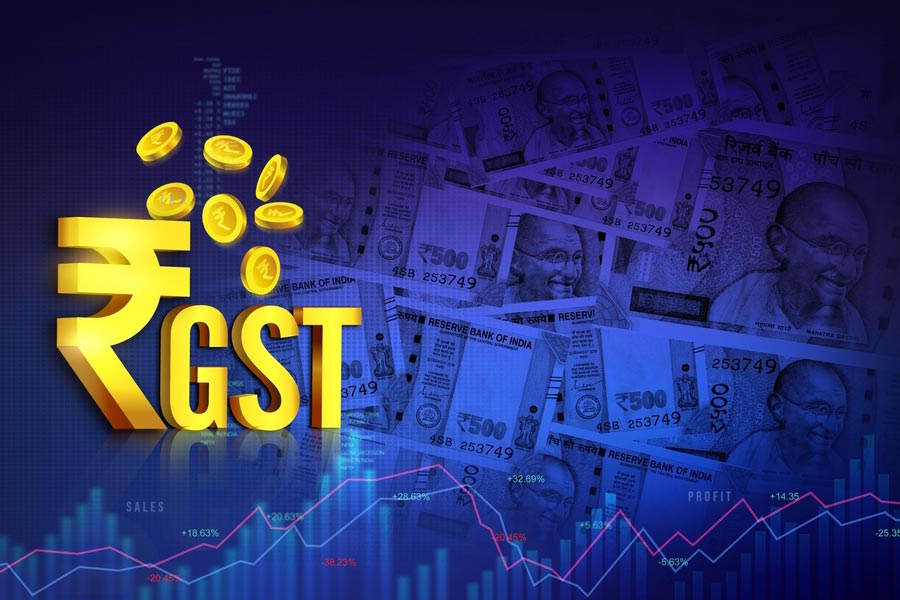The GST Council on Wednesday introduced sweeping changes to the tangled goods and services tax regime, keeping just two slabs of 5 and 18 per cent, eliminating levies on life-saving medicines and life and health insurance and offering relief on small cars, bikes and household items.
However, a steep special GST of 40 per cent has been proposed on cigarettes and other tobacco products, carbonated drinks and luxury items such as mid-size and big cars and private jets.
The new two-tier tax regime, which replaces the four-slab structure of 5 per cent to 28 per cent, will take effect on September 22.
After the completion of the 56th meeting of the GST Council, finance minister Nirmala Sitharaman said it had unanimously approved rate rationalisation with a focus on the common man, labour-intensive industries, farmers and agriculture
and healthcare.
“These reforms have been carried out with the focus on the common man. Every tax levied on the common man’s daily-use items has gone through a rigorous looking into. And in most cases, the rates have come down drastically,” Sitharaman said.
The tax rate has been slashed from 12-18 per cent to 5 per cent on a host of personal-use items such as hair oil, soaps, shampoos, toothbrushes, toothpaste, bicycles, kitchenware, biscuits, jam and jelly, dry fruits and fruit juice.
Packaged food items such as namkeens, sauces, pasta, instant noodles, chocolates, coffee, preserved meat, cornflakes, butter and ghee will now attract a 5 per cent tax. Prepackaged paneer and Indian breads have been made tax-free.
Consumer durables such as air conditioners and televisions, small cars of less than 1,200cc engine capacity and not more than 4,000mm in length, motorbikes with an engine capacity of less than 350cc, and cement will see a rate cut from 28 per cent to 18 per cent.
Tax rates have also been lowered from 12 per cent to nil on 33 lifesaving drugs and medicines, and from 5 per cent to nil on three lifesaving drugs and medicines used for the treatment of cancer, rare diseases and other severe chronic diseases. For all other drugs and medicines, GST has been lowered from 12 per cent to 5 per cent.
Hotel rooms costing less than ₹7,500 per night will now attract a tax of 5 per cent, down from 12 per cent.
Individual life and health insurance policies, including reinsurance, have been exempted from GST.
According to Sitharaman, pan masala, gutkha, cigarettes, chewing tobacco products such as zarda, unmanufactured tobacco and bidi will continue to be charged at the current rate of 28 per cent plus a compensation cess till loans taken to pay states for revenue loss are fully paid back.
The decision to increase the tax rate on these products to 40 per cent will rest on the Union finance minister.
Revenue secretary Arvind Shrivastava said the net fiscal implication from the GST rate rationalisation was estimated at around ₹48,000 crore.
“This is on the consumption base of 2023-24 because that is where we had all the segregated data. The rate rationalisation exercise would result in buoyancy effects… which may play a major role. In addition, there is also an effect on the consumer behaviour of what he spends on and how much he gets influenced by price, which is going to be expected to get positively influenced by this exercise,” Shrivastava said.
“We also expect compliance to improve due to this exercise. And compliance would also have a very positive effect on the revenue generation,” he added.
Sitharaman said the GST Council had corrected the inverted duty structure on textiles by reducing the tax on manmade fibre from 18 per cent to 5 per cent and manmade yarn from 12 per cent to 5 per cent. Inverted duty has also been corrected on fertilisers and renewable energy devices.











